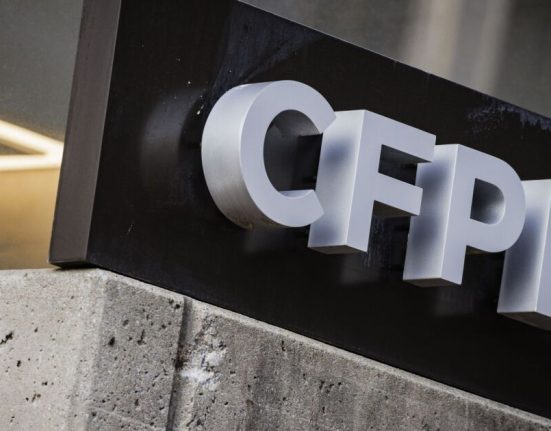
PENDER COUNTY — A formal complaint alleging campaign finance violations involving a sitting commissioner and a local newspaper was filed by a Pender County GOP board member to the North Carolina State Board of Elections last week.
READ MORE: Some Pender commissioners critical over Pender Post cartoon, pull business from pub
ALSO: Pender County and EMS meet as attorney flags issues with merger plans
In his complaint, filed May 8, Phil Cordeiro — also a former Pender County Schools board member — states The Pender Post-Topsail Voice newspaper gave commissioner Brad George discounted rates. Cordeiro claims the move is in violation of multiple statutes.
George and the Post owner and editor Andy Pettigrew deny all allegations.
“This is just harassment is all it is,” Pettigrew said Monday. “He throws it against the wall and sees what sticks. And if you don’t fight it, then it lays there and sticks.”
This is the second time in the last few weeks tension between the Pender Post and Cordeiro have come to light. As previously reported by PCD, the Pender Post featured Cordeiro in a political cartoon on March 20, characterizing him as a puppet master over commissioners Jerry Groves, Chair Randy Burton, and Vice Chair Brent Springer. On April 22, commissioners voted 3-2 to spend county money on legal ads and public notices with the StarNews after having done business with The Post for years.
“Please be careful not to be an unwitting tool in Cordeiro’s assault on Mr. George and the Post and Voice,” Pettigrew said to Port City Daily upon asking about the recent campaign finance complaint. “He hopes to make the accusation and get it reported and put us in the position of defending ourselves.”
This is not the first time Cordeiro has submitted campaign finance complaints against George to the State Board of Elections (NCSBE). In September of last year, Cordeiro filed two complaints. He first alleged George failed to submit campaign finance reports for the second quarter; George admitted to filing the quarter-two reports late, adding he promptly provided them to NCSBE.
George, who was reelected to the board of commissioners in December of 2024, was also accused of violating self-dealing statutes since he voted to appropriate funds to Pender EMS and Fire, where his wife works. The NCSBE concluded at the time George did not violate any statutes and was cleared of alleged wrongdoing.
Cordeiro thinks George now broke the following statutes:
- 163-278.8: Failure to report proceeds of a loan and media expenditures
- 163-278.39: Failure to include “paid for by Pender Post” legend statement
- 163-278.19: Accepting a contribution from a business entity
- 163‐278.11: Failure to report an in-kind contribution
According to G.S. 163-278.6(13), an in-kind contribution is a non-monetary donation of goods or services to a political campaign that must be filed on a candidate’s campaign finance reports.
Essentially, Cordeiro thinks George was given a discounted rate, which would equate to an in-kind contribution. George did not list payment to the Pender Post as in-kind, instead noting they were operating expenses.
Cordeiro spent $10 more per ad than George, who doled out $524.96 for the 2024 election, as reported on his campaign finance documents, for eight ads. By comparison, Cordeiro spent $450 for six ads.
Based on his rate of $75 an ad, Cordeiro said in the complaint he would have paid a total of $600 for a comparable eight ads; roughly $75 more than what George paid. Because of the difference, Cordeiro claimed it constituted a discount.
“A lot of people will try to dismiss these things based on dollar value and me, that’s not what I focus on,” Cordeiro stated. “If someone steals from you, it doesn’t matter whether they stole $100 or $10,000, especially when they’re a public official like Brad.”
George asserted he was unaware of any potential discount granted to him from the Post.
“I don’t know what the rates are, other than the rate they gave me,” George said. “I don’t know how, if it was in-kind, I don’t know how I would have known that. I was under the assumption that I was paying the standard rate.”
Pettigrew said the rate offered to George was not discounted and explained the commissioner placed a larger ad in a less premium spot, whereas Cordeiro placed a smaller ad in a higher premium spot.
“If he really wanted to know the truth, all he had to do was send me an email and I would have said:, ‘Phil, your ad and Brad’s ad are not in the same rate category and you can’t compare them to each other because they’re apples and oranges,’” Pettigrew stated. “They’re not the same, but he didn’t want to hear that because what he wanted to do was to make the charge. He’s not after the truth, he’s after a complaint.”
GS 163-278.18 indicates rates paid for political ads have to be no higher than comparable rates charged to other commercial advertisers for similar advertisements.
According to emails between the Pender Post and Cordeiro in October of 2023, Cordeiro specifically requested his ad be placed in the masthead, directly adjacent to the title of the paper on the page. Pettigrew said the masthead is the premier location on the front page.
George’s ad ran in the body of the paper, which constitutes a cheaper rate in The Post.
“Cordeiro never asked the price; he said he wanted that space and that is the cost,” Pettigrew said. “The size of the ad in that location is already set, due to the space available in the masthead. Mr. George, on the other hand, bought an ad in the body, which is a lower cost. Although it was slightly larger, it was lower in cost.”
Pettigrew added $65.62 per ad is the same rate paid by former commissioner Ken Smith during the same election cycle.
Because Cordeiro thinks The Pender Post gave a discount, he says George’s ads should show in writing they were paid for by the Post and Brad George. Pettigrew laughed at the notion and said the Post didn’t pay for any portion of George’s buy.
Cordeiro claims this would be in violation of GS 163-278.39, which states political ads sponsored by someone other than the candidate or their committee must clearly identify the sponsor. George’s ads said “Paid for by the Committee to Elect Brad George Commissioner” but Cordeiro argued it should also say “Paid for by Pender Post.” He also thinks GS 163-278.19 was violated, accepting a prohibited contribution from a business.
In addition, Cordeiro claims Pender Post provided an extension of credit for George, which he was not offered. Pettigrew said that also was not true.
“If we’ve dealt with [customers] before and had good service, then I don’t mind billing them and Mr. George was billed, and he paid right away,” Pettigrew stated. “It wasn’t like we extended the credit for months and months to pay it off, right? It was due and payable upon receipt — and it was.”
According to emails Port City Daily received from Cordeiro, Katie Pettigrew informed payment for his political ads in the Pender Post needed to be received in full the week prior to publication. According to George’s campaign finance report, he paid 10 to 15 days after publication for ads run during the primary and the general elections. Cordeiro alleges this is a violation of GS 163‑278.8 as any extension of credit should be reported as an in-kind contribution.
But Pettigrew said the decision to make Cordeiro pay a week in advance was due to risk they associated with him, citing Cordeiro’s previous negative interactions with The Post as reasoning.
Pettigrew gave an example of when The Post was set to cohost a 2024 primary candidate forum with the Pender GOP, of which Cordeiro is an executive board member. Pettigrew said he received confirmation from the Pender GOP and subsequently advertised the event in The Post. But following the ad’s publication, he was contacted by Cordeiro, stating the event was not approved and would not take place. Pettigrew believes Cordeiro persuaded the board to cancel the forum.
“This is business, this isn’t politics,” Pettigrew stated. “We don’t bill them according to whether they’re Democrats or Republicans or anything. We bill them according to whether we think they’re going to pay or not.”
GS 163-278.18 on commercial charges for political advertising do not explicitly state when payment must be received, but rather that the amount paid is no higher than the rate charged to other commercial advertisers for similar advertising.
Pettigrew maintains all claims made by Cordeiro to the state board are invalid.
State Board of Elections spokesperson Patrick Gannon said they cannot provide information for ongoing investigations, as stated under GS 163-278.22(7). Following any investigation, the NCSBE may issue warnings, impose penalties, or refer cases for prosecution.
Have tips for Charlie Fossen? Email charlie@localdailymedia.com
Want to read more from PCD? Subscribe now and then sign up for our morning newsletter, Wilmington Wire, and get the headlines delivered to your inbox every morning.






